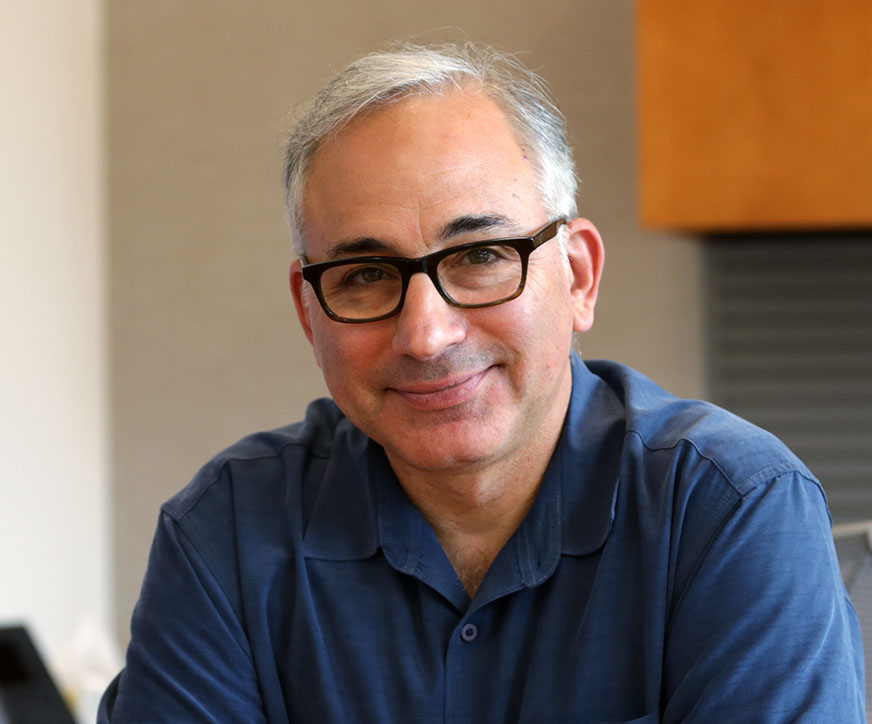
Richard Superfine
Taylor-Williams Distinguished Professor
Murray Hall 1113
superfine@unc.edu
919-843-8933
Research Interest:
Stimulus-Responsive Active and Living Materials
Professional Background
Lehigh University, BS Engineering Physics ’82; UC Berkeley, PhD Physics ’91
Research Synopsis
Professor Richard Superfine studies stimulus-responsive active and living materials from the scale of individual molecules to the scale of physiological tissues, including molecular motors, DNA, cells and microfluidic-based tissue models. He develops and applies new techniques for these studies using optical, scanning probe, electron and magnetic force microscopes, all within his leadership of the NIH National Center of Computer Integrated Systems for Microscopy and Manipulation, CISMM.
Current experiments probe the mechanical properties of single molecules in blood clots, cancer and immune cells, and in cell cultures to understand the fluid flows that clear the lung of infections. His work often involves developing biomimetic structures that mimic biology, most recently in the form of engineered cilia arrays that mimic lung tissue.
Soft Matter
Superfine studies the rheological and transport properties of viscoelastic materials, both engineered and living. He engineers soft actuating structures using lithographic and templating methods, designs actuating systems to create shape changing surfaces that mix and propel fluids while also sensing their properties. Within the context of living systems, he studies biological cells to understand how they respond to and generate forces to move, to establish their own identity and to communicate with neighboring cells and tissue.
Microfabricated Platforms for Sorting and Cloning Cells
Superfine uses engineered biomimetic actuating surfaces to enable novel diagnostic devices for biomedicine. This includes test strip based clot strength diagnostics for therapy decisions in surgery and trauma, and DNA and protein based array assays for personalized medicine. Transport of nanoparticles, whether viruses or nanoparticle delivery systems, through viscoelastic matrices such as mucus and extracellular matrix, is studied to enable effective drug transport and where needed – the promoting the integrity of innate barriers.
Professor Superfine enjoys seeing his research have impact in the world through patents and his start-up company Redbud Labs, Inc., that is developing point of care medical diagnostic technologies. He also serves as the director of BeAM@UNC, the network of makerspaces at UNC Chapel Hill that champions experiential education, research, entrepreneurship and celebrates creativity and innovation for everyone at UNC.

